#International Relations
Text
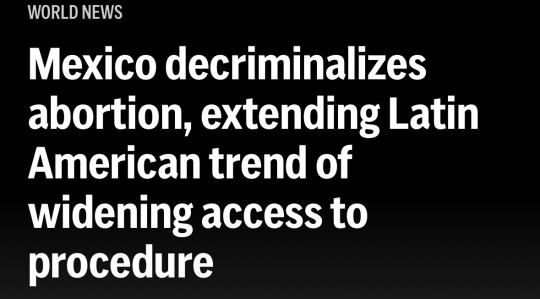



Source
Let’s go
#abortion#politics#Mexico#international relations#government#the left#progressive#good news#news#current events
13K notes
·
View notes
Text
How the kleptocrats and oligarchs hunt civil society groups to the ends of the Earth
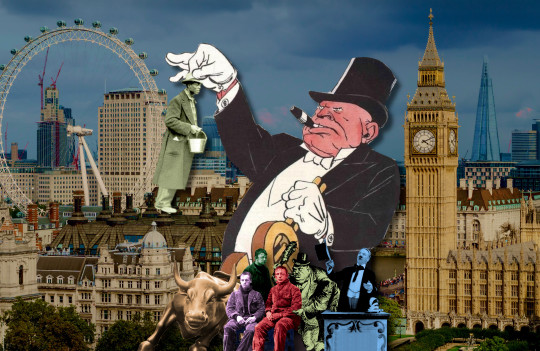
It's a great time to be an oligarch! If you have accumulated a great fortune and wish to put whatever great crime lies behind it behind you, there is an army of fixers, lickspittles, thugs, reputation-launderers, procurers, henchmen, and other enablers who have turnkey solutions for laundering your reputation and keeping the unwashed from building a guillotine outside the gates of your compound.
The field of International Relations has studied the enemies of the Klept in detail: the Transnational Activist Network is a well-documented phenomenon. But far more poorly understood is the Transnational Uncivil Society Network, who will polish any turd of sufficient wealth to a high, professional gloss.
These TUSNs are the subject of a new, timely scholarly paper by Alexander Cooley, John Heathershaw and Ricard Soares de Oliveira: "Transnational Uncivil Society Networks: kleptocracy’s global fightback against liberal activism," published in last month's European Journal of International Relations:
https://ora.ox.ac.uk/objects/uuid:5e5a3052-c693-4991-a7cc-bc2b47134467/download_file?file_format=application%2Fpdf&safe_filename=Cooley_et_al_2023_transnational_uncivil_society.pdf&type_of_work=Journal+article
The authors document how a collection of institutions – some coercive, others organized around good works – allow kleptocrats to take power, keep power, and use power. This includes "wealth managers, company providers, accounting firms, and international bankers" who create the complex financial structures that obscure the klept's wealth. It also includes "second citizenship managers and lawyers" that facilitate the klept's transnational nature, both to provide access to un-looted, prosperous places to visit, and boltholes to escape to in the face of coup or reform. It includes the real-estate brokers and other asset facilitators, who turn whole precincts of the world's greatest cities into empty safe-deposit boxes in the sky, while ensuring that footlose criminal elites always have a penthouse to perch in when they take a break from the desiccated husks they've drained dry back home.
Of course, it also includes the PR managers and philanthropic ventures that allow the klept to launder their reputation, to make themselves synonymous with good deeds rather than mass murder. Think here of how the Sacklers used charity to turn their family name into a synonym for culture and fine art, rather than death by opioid overdose:
https://pluralistic.net/2023/08/11/justice-delayed/#justice-redeemed
Beyond providing comfort to "Politically Exposed Persons" and "High Net-Worth Individuals," TUSNs are concerned with neutralizing TANs. Activists in these transnational networks play an inside-outside game: in-country activists will recruit peers abroad to bring attention to the crimes of their local kleptocrats. These overseas partners target the klept in the places they go to play and spend, spoiling their fun – and if they succeed in getting corrupt leaders censured abroad, then in-country activists can leverage that bad press to fight the klept at home.
To fight this "Boomerang Effect," TUSNs seek to burnish corrupt officials' reputations abroad, getting their names on humanitarian prizes, beloved sports teams, cultural institutions and great universities. They seek to capture international governance institutions that might wrong-foot kleptocrats, co-opting them to enable and even celebrate looters.
When it comes to elite philanthropy, TUSNs are necessarily selective. Kleptocrats' foundations don't fund anti-kleptocratic groups – they stick to "education, public health, the environment and the arts." These domains steer clear of human rights questions that might implicate their benefactors. Russian oligarchs love children's charities and disability rights – provided they don't target the Russian state.
If charitable giving is reputation laundering's carrot, then "reputation management" is the laundry's stick. Think of organized copyfraudsters who clone websites that have criticized their clients, then backdate the articles, then accuse the originals of infringing copyright in order to get them de-listed from Google or taken offline altogether:
https://pluralistic.net/2021/04/23/reputation-laundry/#dark-ops
Reputation managers also spend a lot of time in court. In the UK – the world's leader in libel tourism, thanks to a legal system designed to let posh monsters sue muckraking journalists into silence – Russian oligarchs have perfected the art of forcing their critics to shut up and go away:
https://pluralistic.net/2022/03/04/londongrad/#enablers
Indeed, London is a one-stop shop for the global klept, a place were forelock-tugging Renfields will buy you a Mayfair mansion under cover of a numbered company, sue your critics into silence, funnel your money into an anonymous Channel Islands account:
https://pluralistic.net/2022/01/07/the-klept/#pep
They'll sell you whole galleriesworth of "fine art" that you can have relocated to a climate-controlled container in a Swiss or Irish freeport:
https://pluralistic.net/2020/07/14/poesy-the-monster-slayer/#moneylab
They'll give your thick-as-pigshit progeny a PhD and never check to see whether he wrote his thesis himself:
https://en.wikipedia.org/wiki/LSE%E2%80%93Gaddafi_affair
Then they'll hook you up with a cyber-arms dealer to hunt your enemies by capturing their devices:
https://pluralistic.net/2021/07/27/gas-on-the-fire/#a-safe-place-for-dangerous-ideas
But don't let Brexit stop you from shopping for bargains on the continent. The Golden Passports of the EU – available in a variety of flavors, from Maltese to Cypriot to Portuguese – offer the discerning failson access to the luxury good shops and fleshpots of 27 advanced economies, making it a favorite of the Khmer Riche – the junior klept of Cambodia's ruling faction:
https://www.reuters.com/investigates/special-report/cambodia-hunsen-wealth/
But golden passports are for amateurs. Skilled klepts travel on diplomatic passports, which offer the twin benefits of free movement and consequence-free criminality, thanks to diplomatic immunity. The former Kazakh dictator's son-in-law enjoyed a freewheeling diplomatic life in Vienna; one daughters of the dictator of Tajikistan had a jolly time as an envoy to DC; another, to London (where else?).
All this globetrotting serves a second purpose: when rival elites seize power back home and force the old guard into exile, those ex-monsters can show up in the lands they called their second homes and apply for asylum. It turns out that even bomb-the-boats UK will welcome any asylum seeker who enters via the private jet terminal at City Airport (to be fair, these "refugees" have extensive properties in Zone 1 and country places in the Home Counties, so they won't need housing).
This stuff works. After Kazakh state goons murdered at least 14 protesters at a Zhanaozen oil facility in 2011, human rights groups around the world took up the cause. But they were effectively neutralized by TUSNs, with former UK PM Tony Blair writing on behalf of the Kazakh government to the EU condemning any kind of international investigation into the mass killings (add "former Prime Ministers" to the list of commodities for sale in the UK to sufficiently well-resourced murderer).
The authors close their paper with two case-studies. The first is of the daughters of Uzbek dictator Islam Karimov, Gulnara and Lola. And President Karimov was indeed a dictator: he trapped his population within his borders, forced them to use unconvertible scrip in place of money, and ordered the murder of hundreds of peaceful protesters, plunging the country into international isolation.
But while Uzbeks were sealed within their borders, Gulnara Karimov became an international player, running a complex network of businesses that mixed the products of the nation's oilfields with her family's fortune. She solicited – and received – bribes from Teliasonera, MTS and Vimpelcom, who were all vying for the contract to provide service in Uzbekistan. All told, she extracted more than $1b in bribes, laundering them through Latvia, Hong Kong and New York. She acquired real-estate in France and Switzerland, and her spree continued until her father collaborated with Uzbek security to seize her assets and place her under house-arrest.
Lola Karimova-Tillyaeva was Gulnara's estranged younger sister. She and her husband Timur Tillyaev ran the Dubai-based SecureTrade, which did extensive business with "opaque Scottish Limited Partnerships," laundering more than $127m in a single year to offshore accounts in the UAE and Switzerland. They acquired many luxe assets – a jet, a Californian villa, and an LA perfumier.
Lola styled herself as the face of the Karimovas abroad, a "philanthropist and cultural ambassador." She was a UNESCO ambassador and commissioned works of monumental art – and also sued the shit out of news outlets that reported factual matters about her family repressive activity at home. She organized AIDS charities in the name of Uzbekistan – even as her father was imprisoning a writer for publishing a book explaining how to have safer sex.
The second case-study is on Isabel dos Santos, "Africa's richest woman," daughter of Angolan dictator Jose Eduardo dos Santos. Isabel's vast fortune stemmed from her personal capture of vast swathes of the third-largest economy in Africa: "telecommunications, banking, diamonds, real estate and cement, among many others." Isabel enjoyed seemingly limitless access to state credit and co-investment, and was given first crack at newly deregulated industries. Foreign firms that invested in Angola were required to "partner" with Isabel's businesses.
Isabel claimed to be a "self-made woman" – a claim credulously parroted by the western press, including the FT. She used her homegrown fortune to become a major player abroad, especially in Portugal, where she was represented by the leading Portuguese law-firm PLMJ. Her enablers are who's who of corruption-loving lickspittles: McKinsey, Ernst and Young, Boston Consulting Group, and the Spanish BigLaw firm Uri Menendez.
Isabel cultivated a public facade of philanthropic giving and public spirited activism, serving as head of the Angolan Red Cross. She attended Davos and spoke at the LSE (she was also invited to Oxford, but her invitation was subsequently rescinded). On social media, she dismissed critics of her wealth and corruption as "colonialists," decrying their "racism" and "prejudice."
Isabel dos Santos's corrupt sources of wealth were finally, irrefutably exposed through the Luanda Leaks, in which the International Consortium of Investigative Journalists mapped the network of "top banks, management consultants and legal firms that were central to dos Santos’s operations."
Both case studies shed light on the network of brilliant, driven enablers and procurers without whom the world's greatest monsters would falter. It's a rare window on a secretive world, one that is poorly understood even by its inhabitants. As Michael Mechanic wrote in Jackpot, his 2021 book on vast, intergenerational fortunes, the winners of the lucky orifice lottery often lack any real understanding of how The Money is structured, grown and protected:
https://pluralistic.net/2021/04/13/public-interest-pharma/#affluenza
This point was reiterated by Abigail Disney, in a brave piece on what it's like to grow up subject to the oversight of these millionaires who babysit the children of billionaires:
https://pluralistic.net/2021/06/19/dynastic-wealth/#caste
This is an important contribution to the literature. We naturally focus on the ultrawealthy individuals whose reputations and fortunes are the subject of so much attention, but without the TUSNs, they would be largely helpless.

Going to Burning Man? Catch me on Tuesday at 2:40pm on the Center Camp Stage for a talk about enshittification and how to reverse it; on Wednesday at noon, I'm hosting Dr Patrick Ball at Liminal Labs (6:15/F) for a talk on using statistics to prove high-level culpability in the recruitment of child soldiers.
On September 6 at 7pm, I'll be hosting Naomi Klein at the LA Public Library for the launch of Doppelganger.
On September 12 at 7pm, I'll be at Toronto's Another Story Bookshop with my new book The Internet Con: How to Seize the Means of Computation.

If you'd like an essay-formatted version of this post to read or share, here's a link to it on pluralistic.net, my surveillance-free, ad-free, tracker-free blog:
https://pluralistic.net/2023/08/24/launderers-enforcers-bagmen/#procurers

Image:
Sam Valadi (modified)
https://www.flickr.com/photos/132084522@N05/17086570218/
CC BY 2.0:
https://creativecommons.org/licenses/by/2.0/
--
Colin (modified)
https://commons.wikimedia.org/wiki/File:Palace_of_Westminster_from_the_dome_on_Methodist_Central_Hall_(cropped).jpg
CC BY-SA 4.0
https://creativecommons.org/licenses/by-sa/4.0/deed.en
#international relations#ir#enablers#consiglieri#lickspittles#plutes#guillotine watch#politically exposed persons#peps#high net work individuals#hnwis#oligarchs#reputation laundering#spyware#renfields#big law#uk#kleptocrats#transnational activist networks#tans#civil society#ngos#transnational uncivil society networks#tusns#slapps#Uzbekistan#Gulnara Karimova#Isabel dos Santos#angola#corruption
2K notes
·
View notes
Text
It’s easy to love someone when times are good. Real love is about holding on to one another when times aren’t.
#quotes#couples#relationship#love#thoughts#relationship goals#relationship quotes#love quotes#relationships#quotes of the day#Valentiensday#valentine#valentines day quote#valentine's day#valentines day#relationship tips#long distance relationship#international relations
759 notes
·
View notes
Text
#interracial#wwbm#bmww#kiss#kissing#couple#couples#interracialcouple#interracialcouples#interracialkiss#interracial kissing#interracial relationship#interracal#interracial love#interracial couple#international relations
922 notes
·
View notes
Text
I think people need to realize that it was sheer luck that they have been born in developed countries with decent living conditions, away from the threat of war or civil conflicts. It is by pure coincidence at times that you end up being a citizen of a developed country, rather than one with an impoverished population experiencing man-made (because it is man-made in this day and age) famine, diseases that have been long eradicated or war (be it a civil conflict or due to selfish interests of developed nations who profit from these, at the cost of civilian lives). You could have been born into these conditions.
The point is: NO ONE should ever be made to witness the horrors of war, famine, poverty, disease or any other trauma inducing situation in which they have no free will or say about its outcome.
#human rights#free palestine#global south#global north#development#international politics#International relations#north korea#china#myanmar#thailand#burkina faso#free sudan#south sudan#idk what else to add here#israel palestine conflict#israel apartheid#iran#yemen#syria#ira1#afghanistan#i stand with palestine#UN#us#uk#humanitarian crisis
1K notes
·
View notes
Text
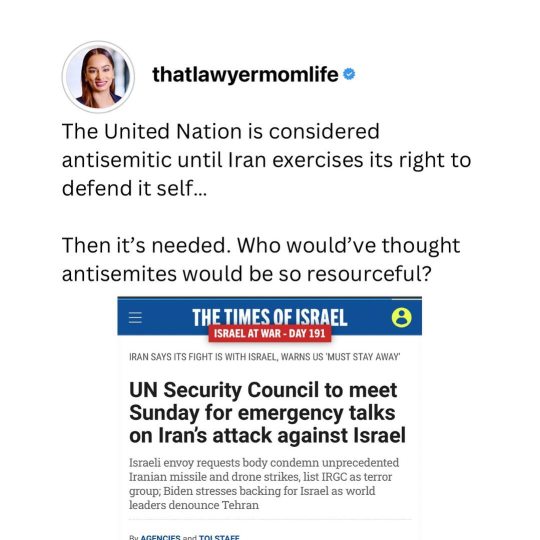

#israel#iran#united nations#world war iii#geopolitics#middle east#conflict#diplomacy#international relations#embassy attack#fuck israel
176 notes
·
View notes
Text
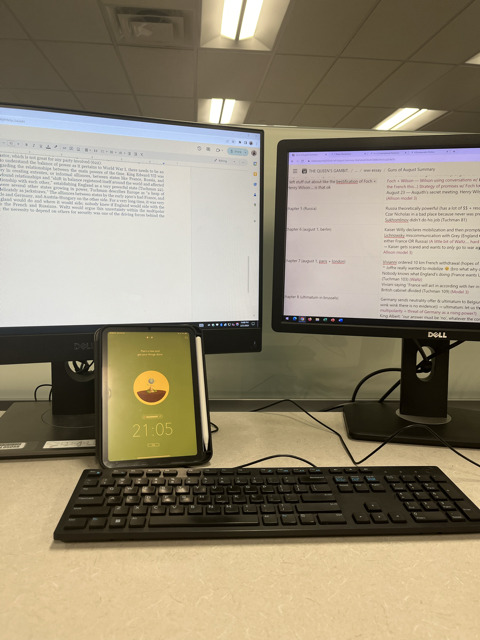

google docs + notion + dual monitors = chef's kiss
i love going to the library for the sole purpose of using the double monitors, it makes me feel so much more productive. (especially for essay writing! omg lifesaver)
#studyblr#study aesthetic#chaotic academia#study motivation#studyspo#academia#studying#study inspo#uniblr#university student#uni life#student life#student#international relations#uni studyblr#college academia#*#ilyastudies
189 notes
·
View notes
Text

Alternate headline: India admits to assassinating Hardeep Singh Nijjar and not feeling bad about it (?)
Either way, kinda sus.
150 notes
·
View notes
Text
African countries are being forced to spend billions of dollars a year coping with the effects of the climate crisis, which is diverting potential investment from schools and hospitals and threatens to drive countries into ever deeper poverty.
Dealing with extreme weather is costing close to 6% of GDP in Ethiopia alone, equating to a spend of more than $1 repairing climate damage for every $20 of national income, according to research by the thinktank Power Shift Africa.
The warning comes just before the major new scientific report from the global authority on climate science, the Intergovernmental Panel on Climate Change. This report, the second part of the IPCC’s comprehensive summary of global climate science, will set out the consequences of climate breakdown across the world, looking at the floods, droughts, heatwaves and storms that are affecting food systems, water supplies and infrastructure. As global temperatures have risen in recent decades, and as the impact of extreme weather has become more apparent around the world, efforts to make infrastructure and communities more resilient have largely stalled.
Africa will be one of the worst-hit regions, despite having done least to cause the climate crisis. According to the Power Shift Africa study, titled Adapt or Die: An analysis of African climate adaptation strategies, African countries will spend an average of 4% of GDP on adapting to climate breakdown.
These countries include some of the world’s poorest people, whose responsibility for greenhouse gas emissions is many times less than those of people in developed countries, or in large emerging economies such as China. Sierra Leone will have to spend $90m a year on adapting to the climate crisis, though its citizens are responsible for about 0.2 tonnes of carbon dioxide emissions a year each, while US citizens generate about 80 times more.
Mohamed Adow, director of Power Shift Africa, said: “This report shows the deep injustice of the climate emergency. Some of the poorest countries in the world are having to use scarce resources to adapt to a crisis not of their making. Despite only having tiny carbon footprints compared with those of the rich world, these African countries are suffering from droughts, storms and floods which are putting already stretched public finances under strain and limiting their ability to tackle other problems.”
He called for more funding from developed countries, which promised at the Cop26 UN climate summit to double the money available to help poor countries adapt to the climate crisis. Rich countries promised in 2009 to provide $100bn a year to help poor countries cut their greenhouse gas emissions and cope with the effects of climate breakdown. But so far they have fallen short of that target, and most of the funds that have been provided have gone to projects to cut emissions, such as windfarms and solar panels, rather than efforts to help countries adapt.
The study examined national adaptation plans submitted to the UN by seven African countries: Ethiopia, Kenya, Liberia, Sierra Leone, South Africa, South Sudan and Togo. South Sudan, which is the world’s second poorest country, was hit by floods last year that displaced 850,000 people, and led to outbreaks of water-borne diseases. The country is to spend $376m a year on adaptation, about 3.1% of its GDP.
Chukwumerije Okereke, director of the centre for climate change and development at the Alex Ekwueme Federal University in Nigeria, said rich countries must respond to the findings, and to the IPCC report.
“It is both irresponsible and immoral for those that are the chief cause of climate change to look on while Africa, which has contributed next to nothing to climate change, continues to bear a disproportionate share of the impact,” he said. “The time for warm words is long gone. We need urgent, scaled-up, long-term support from the world-leading climate polluters.”
— African countries spending billions to cope with climate crisis
#fiona harvey#current events#climate change#global warming#climate justice#economics#international relations#poverty#ethiopia#sierra leone#kenya#liberia#south africa#south sudan#togo#mohammed adow#chukwumerije okereke
951 notes
·
View notes
Text
MileApo and the rise of Thai soft power
Mile and Apo talking about the Thai period film at the Vogue Thailand Gala on 2022/9/21
I've been meaning to sit down and write about this for a while now, ever since I saw the pattern of Mile and Apo injecting it into their talking points about the 2023 historical film, but it's taken some an effort to actually lay it out. Hopefully the time I sat with it will make the it a more insightful, rich reading experience.
Disclaimers:
(1) I have no formal experience in international relations aside from reading and watching the news, but my strong point is research. Folks with a more formal backgrounds in policsci or IR are welcome to add their input!
(2) Comments about policies or political actions of nations, whether positive, neutral or negative, are not meant to reflect on private individuals of the nationality, even those with a notable amount of social-cultural capital. Private individuals, despite their positions of social influence, most often have little to no individual influence on a policy level**.
So without further ado:
What is soft power? (aka soft power for dummies)
Joseph Nye, a then-Harvard professor, coined the term soft power in the 1980s/early 90s. He described it as:
“A country’s ability to influence the preferences and behaviors of various actors in the international arena (states, corporations, communities, publics etc.) through attraction or persuasion rather than coercion.”
In his book Bound to Lead, Nye established that three prongs of a country's soft power were its culture, its political values, and its policies. Here are two different graphics that further break down what those look like when evaluating soft power in practice.
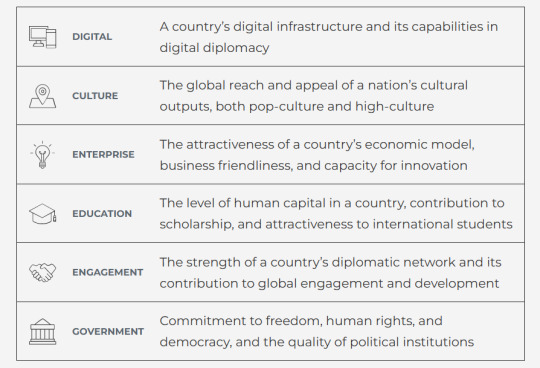
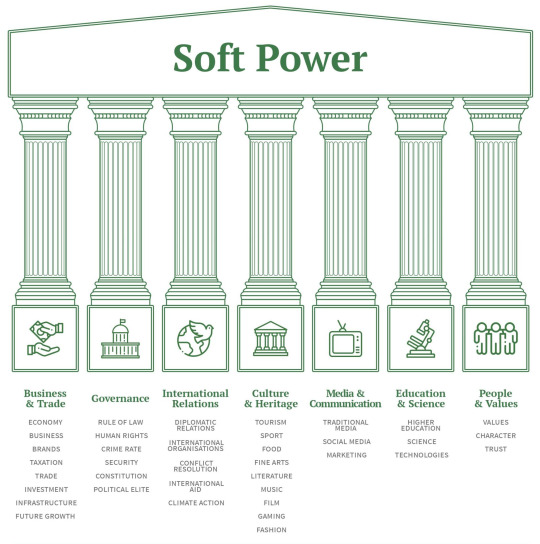
If you feel like all the above is still vague to the point of unparsable in an applied context, I spent the majority of the time researching how to demystify the term especially in the way MileApo discuss it, and found this great explainer:
A strong nation brand and positive soft power perceptions allow a nation to promote itself as a place for people to visit, invest in, and build a reputation for their quality of goods and services. [...] it is often overlooked that a strong nation brand and soft power can deliver better outcomes at home. Primarily it encourages domestic tourism, the consumption of domestic goods and services (rather than imports). Less tangibly it also just makes people feel better about their country.

Expressed in this context, soft power can be understood as the act of building trust in the cultural products of a nation domestically -- some more abstract in the form of art (music, film) and culture, some more concrete like products including fashion and beauty -- in a manner to appeal to its own citizens while also broadening the appeal of cultural goods abroad in a which can drive international tourism, trade, and commerce.
In other words: yes, our collective desire to actually taste Farmhouse bread.
The Thai government and the push for soft power
While my interest in this topic was originally piqued by MileApo's comments, soft power policy has to originate at the government level. Note again that Nye's definition of soft power is centered around "a country’s ability to influence", therefore soft power policy must always formally be expressed nationally.
Around the time MileApo consistently began promoting soft power in alignment with the period film, I noticed a slew of references in Bangkok Post, one of the reputable English online publications based in Thailand.
Back tracking through some of the articles as a reflection of national conversation, since 2020, there has been a consistent theme in terms of what the government is attempting and how well it's going (or not going):
On Thailand's soft power and positioning in the world, Feb 2020:
According to Kitti Prasirtsuk of Thammasat University, who has carried out extensive research into Thailand's branding and repositioning in the age of interconnectedness and social media, Thailand and its culture, values and foreign policy have charisma and high persuasive power which can attract admiration and cooperation. But the Thai people and bureaucrats must change their mindset and perceptions and appreciate their country in real terms first before they take up new challenges.
Within Asean, Thailand is behind Singapore as No.1 [among SE Asian soft power rankings]. The report stated that Thailand has the potential to rise into the top 30 in the world, if the country can strike the right political balance between the rural poor and urban elite. It went on to say that Thailand's weaknesses are problems related to corruption and inequality. It also said that the Thai government is failing to showcase the full potential of Thailand's rich cultural offerings beyond tourism. One more weak link is its poor performance in public diplomacy and digital infrastructure.
(Mile, Apo, and Bible all attended Thammasat University, which is considered one of the premiere universities in Thailand. Apo later transferred and graduated from a different university.)
On Milli, a Thai rapper who performed at Coachella in Spring 2022:
The presence of the 19-year-old rapper Milli at the Coachella Music Festival in the United States has reinvigorated Thailand's soft power ambitions -- an area the Thai government has not fully explored nor exploited. Milli, whose real name is Danupha Khanatheerakul, is the first solo Thai artist to perform at Coachella, a music festival that draws tens of thousands of fans annually.
[Milli's prescence at Coachella] was able to advance Thailand's soft power [in ways previously stalled]. It is not that the government is clueless about "soft power". For decades, governments have focused on presenting Thailand's soft power to the world. However, that iteration of "soft power" mainly consisted of Thai customs and traditions such as food, costume, classical dance, Buddhism rituals and the wai. These aspects of our cultural heritage, despite being charming to foreign tourists, are not sufficient to catapult Thailand's into a stronger position in the global market. Thai cultural heritage has failed to catch up in the digital age…
Milli's song also includes ideas relevant to international audiences. One of her songs openly discusses sexual consent. Being relevant is one of the keys to increasing the nation's presence among diverse populations. The cultural impact made by a young girl like Milli should make the government rethink its cultural promotion strategy. More support is needed for progressive Thai artists and innovators.
An opinion rebuttable on Milli's performance and the government's blundering of reaching for soft power while not meeting basic domestic requirements:
One of the minister's advisers belted out a long speech that did not seem to address how Thailand will become a "soft power" but used the term multiple times. One can't help but wonder if the ministry knows what it is doing, or what the so-called "soft power" it is espousing is about.
Milli's self-taunting line "I don't ride an elephant" may sound a bit old but her rapping about how "the country is good, people are good, our food is good but the government is bood," seems to have struck a chord. "Bood" means rotten in Thai. It is thus understandable if the government was not too coherent when discussing anything about the phenomenon that Milli created. Indeed, [Thailand's Prime Minister] Gen Prayut should feel awkward discussing the "soft power" of Milli and mango sticky rice when he filed a defamation charge against the teen rapper himself back in June last year.
Talented as Milli is, and extraordinary her achievements both locally and at one of the world's most famous music festivals have been, the teenage rapper really has nothing to do with so-called "soft power" which government figures are talking about. Her success is largely individual. Milli created a sensation and a craze. For Thailand's "soft power" to be built, let alone recognised globally, it takes more than one successful artist…
The whole product must be good if it is to exert influence. As experts argued, it takes a wide range of qualities for a country to say it has "soft power". These include the quality of its political institutions, education, digital development, innovation, cultural appeal, strength in arts or business brands. That is why it is odd for everyone to talk about Thailand's "soft power" now when we don't seem to have ticked any of the basic requirements.
On Bangkok International Fashion Week (BIFW):
BIFW2022 has been [a] major and continuing mission to promote and drive Thai fashion to international levels. The event strategically aligns with the government’s strategy to empower Thai fashion industry as fashion is one of the most influential soft power that stimulate economic growth.
Note that multiple actors in BOC walked BIFW2022 in September, as well as multiple actors from other Thai BL shows that aired in 2022.
On the increasing popularity of Thai BL:
Thai BL is now popular across Southeast and East Asia[, and] has been gaining traction in Japan, the home of BL, since 2020. Posters of famous khu jin were put up in a train station. Magazines that cover Thai drama, including BL, are rolled out for the Japanese audience. The Tourism Authority of Thailand has launched a Twitter account that uses BL to engage Japanese consumers. They are conducting research on these issues in the context of soft power.
Yes you read that correctly. No joke, BL as a facet of Thai soft power is so prevalent now that the government is literally tracking its popularity and Twitter conversation around the topic.
So what does this all mean?
Thailand is a country within Asia and internationally that has a lot of appeal as a tourism destination. However, with many competitor alternatives in both entertainment (particularly film and music) and beauty/fashion, which are major drivers soft power within Asia and internationally, and domestic dissidence of policy and politicians due to social conditions, Thai cultural power is not as prominent as it could be and also suffers at the international level.
While there is appeal of specific Thai cultural products internationally (such as Milli at Coachella or in the case of Kinnporsche the Series) the government has failed to activate these prominent media products as part of a cohesive soft power strategy.
However, the government does seem aware of the potential, specifically in the realm of BL. Thailand has always maintained an image of being LGBTQ-friendly among all the Asian countries, and may now be looking to push LGBTQ-aligned media (BL and GL dramas) specifically as part of its soft power strategy to increase pop culture and media appeal.
MileApo on Soft Power
Part of the reason my ears perked up at MileApo's consistent talking point of soft power is again, because even without a polisci background, I'm aware that soft power is expressed at the country policy level. Thus when both of them started specifically using the term to discuss the film in pre-production phase, it got my brain gears turning.
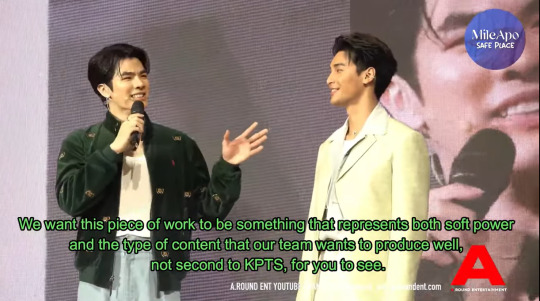
Mile talking about the film on 2022/9/24 at the D7 Grand Opening (vid/txt)

"Nong Po will act with Hia Mile -- please look forward to this movie next year, please look forward to that a lot. We want to expand Thai culture and soft power..." Apo on the Thai period movie at the KPWT Send off on 2022/9/11
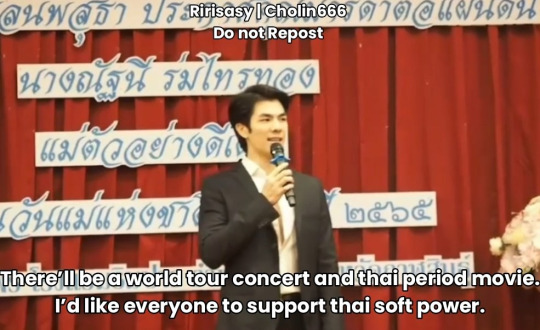
Mile Phakphum's speech on Mother's Day in Kalasin, 2022/8/5
Here's what we do know. Apo's dance training for the film is with a teacher affiliated with the academy that also produces dancers who specifically entertain the royal court.
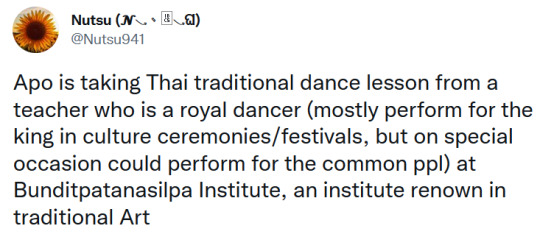
And here is what they individually said in the Vogue Thailand print interview (completed in late August 2022, published October 2022)
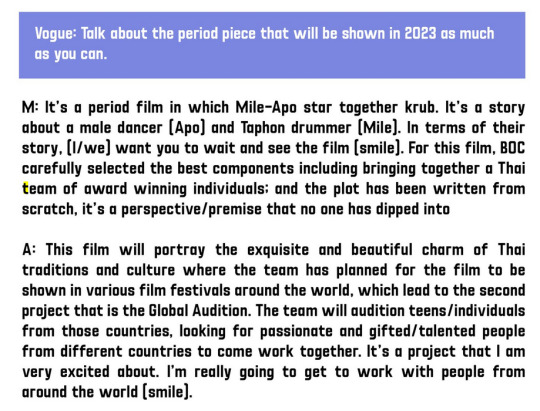
And I would be remiss and dishonest to not point out that Mile's family is prominent in Thailand and his mother is part of the Queen's inner circle. Keep in mind that Thailand is a constitutional monarchy where the monarch has limited powers in practice (think: Japan or UK), and Thailand has a history of cyclical political instability that does not displace the monarchy. So believe him when he says he has limited power compared to Kinn. He travels on a private citizen's passport like all the rest of the cast. (Though my eyes start watering when I'm thinking about baby chaebol CEO Mile and destiny.*)
That being said, what these connections likely did get the production team was access to cultural resources such as the dance expert and most likely credentialed historians to consult on the period film. I would surprised if there aren't ministers' offices who are in the loop about film's production in a way they would not pay to other film or show production teams. I'm sure we will find out more about the interesting and important people involved in the production process around the time the film is released.
Another aspect that stood out to me is the fact that Mile and Apo, neither of whom have policy backgrounds, started iterating the discussion point of soft power in a way you don't see Milli, or Mew Suppassit (who let's not forget was also a RSIFF invitee and the first Thai artist to break into the Billboard World Song Chart), talk about it. Mew actually has talked about soft power a couple of times, but only in the context that he is part of a cultural wave that can increase Thailand's influence globally and never specifically in relation to a project he is promoting. That speaks a lot to the team behind the scenes involved in the writing and consulting (and marketing) process of the 2023 historical film.
The timeline of when these comments popped up is also interesting. While they do coincide with the release of the trailer post KPWT Bangkok, most likely what's happening during this time period is that BOC and more specifically Mile is shopping for sponsors to the project.
Think about Mile speaking about Thailand soft power to an audience of mostly older businesspeople at the mother's day event -- what would the purpose be except an ask for partnership on a project that he is on, which can become a vehicle for Thai products both domestically and globally? Look at the timing of the announcement of the Srichand partnership (end of August), and how successfully that broken the brand into the lucrative Chinese market, moving millions of THB worth of product for a brand that had struggled to get any traction previously. While Srichand's focus is currently on China, working with a Thai beauty brand for a film where the trailer highlighted many historical makeup elements is an actually ideal brand partnership and project alignment.
(Sadly for us, I don't think the film will be the second longest bread commercial in existence. But based on the Farmhouse CEO's comments, I would be unsurprised if they signed on to support the film project too. Ancient Thai bread I guess *jazz hands*)
In Conclusion
MileApo's soft power talking point was an intentional move specifically to shop the film project around for sponsors. The Srichand partnership proved MA-as-a-brand's ability to move product in a lucrative, hard-to-crack foreign market, though Srichand (and Giffarine) as brands aren't necessarily able to stand in the market independently as of yet. Their past brand partnerships' success simultaneously showed how lucrative it is to book MA for a product domestically. I'm sure we'll see a slew of new interesting sponsors and brand partnerships this year. This is only the beginning of MA's power as a cultural brand domestically and internationally.
Mile and Apo have also expressed their pride in the past in being cultural ambassadors of Thailand, both at the RSIFF and when speaking about engaging tourists who are visiting Thailand. Their praise of Thai products (for example, the artistry of Thai silk in the Vogue Th Gala interview) and their active choice to work with mostly Thai brands speaks to their values as businessmen who genuinely want to uplift Thailand's influence in the global market.
That being said, the Thai cultural ministry cannot rely on a single cultural emissary to advance its soft power agenda globally, and as of right now, despite ...some attempts, a cohesive government strategy around soft power does not exist.
MileApo have demostrated their brand has strong impact, and that they can influence purchase behavior internationally (e.g., KPWT ticket sales, Srichand) in ways many Thai media figures have not been able to as of yet. But they are not formally tied to the Thai government, nor should the government intervene and attempt to direct artistic expression.
Culture is one aspect of soft power, and political/humanitarian expression is another major component that advances an international soft power agenda. There are already articles discussing Thailand's problems of political corruption and self/journalistic censorship due to political conditions that prevent full freedom of expression. But that's the government's problem to address that. There is a lot of unharvested potential in multiple realms.
This essay is not about that though. I'm just a fan.
Can it be December 2023 yet 🥺
Additional notes that don't fit into the essay under the cut:
(1) There was a lot of fandom hand-wringing in August and September about Apo publicly having working dinners with Pond over the film project. Let's not forget Mile is someone who cares deeply about the art he makes, and he and Apo both have said multiple times they talk almost nightly about their artistic intent. If Mile talks to Apo and Apo was talking to Pond, why would Mile, a person who cares deeply about art, not be talking to Pond in pre-production? Obviously the answer is a division of labor in the relationship: Mile was working on funding which is just as important, and Mile also needs to sleep and rest and not work. There wouldn't be anyone else he would trust to convey his artistic intent to the director except for Apo. True power couple behavior right there.
(2) * everyday I go feral over baby chaebol CEO Mile. If someone made a kdrama about a handsome chaebol baby who was a CEO but also an actor and model who met his soulmate in university but it was a missed connection and then the soulmate went on to become a famous actor/model who quit because of bullying, but then they met again when the baby chaebol WHO IS STILL A CEO BUT ALSO AN ACTOR met at an audition for a drama... *foams at mouth* I would call this show bizarre, nonsensical and incoherent, and yet HERE WE ARE IN REAL LIFE. The jetsetting supermodel with wealthy CEO part of reality which is now bending around MileApo so they can live their wattpad fanfic life. What the hell am I looking at, I ask myself every day.
(3) ** this statement does not include billionaires like Elon Musk or Jeff Bezos whose net worth exceeds those of small and mid-sized countries. Per today's estimate, ~50 people/families have more wealth than 90 of 190 countries. If your net worth can run the economy of half the countries in the world, then your wealth/resources hoarding behavior can control what the media says and influence otherwise free and fair elections.
Once again, Some of you need some contextualization of how comfortably wealthy vs. billionaire resource-hoarding rich looks like.
#mileapo#mile phakphum#apo nattawin#political science#soft power#international relations#thailand#thailand soft power#kinnporsche#mileapo 2023 film#if you like it give it a reblog#i spent so long on this#like twice as long researching as writing#if people don't like this one i'm gonna fr cry#business analysis#business#business case study#vogue thailand gala#vogue thailand#mileapo x vogue#kinnporsche meta#mileapo meta
599 notes
·
View notes
Note
gen question, what are israelis supposed to do? where are they supposed to go?
This can’t possibly be an honest question…
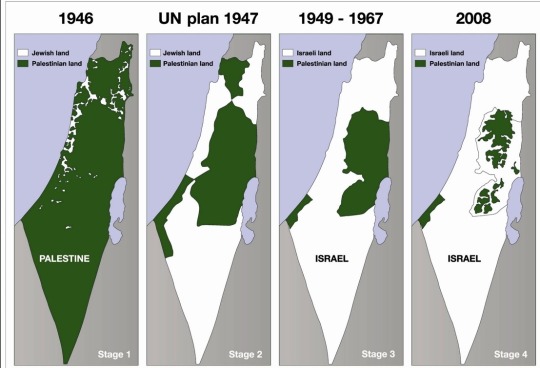

4K notes
·
View notes
Text
Geopolitics is not what you think.
It is interesting to me that how we view issues of global politics and how academics and certain political actors view the issues have such a huge separation.
For instance, when people view the russian invasion of ukraine, they think of a simple power grab, or they don't understand why russia would want to do that.
When i was talking to a friend, who is a geopolitical expert, about the russian war against ukraine, he pulled out a topographical map of europe. Geopolitics is the study of how geography affects politics. it is NOT a general term for international politics.

The easy answer is Russia's need for a warm water port. If you know russia's borders, you would know that all of it's major ports are in the north and they freeze in the winter. They don't have a good port in the black sea that stays unfrozen. Sevastopol is the port in Crimea. While technically Ukrainian territory, it has been controlled by Russia since 2014.
The second point he made was looking at the moutains. See the map above. Then let's look at a map of the warsaw pact

Understanding moutain ranges and how they are defensible, you start to see why NATO and the Warsaw pact involved those specific countries. it creates a natural bottle neck in Germany. This also goes into why Poland gets invaded so much. it is a flat territory without natural boundaries that makes it easy to attack, and if you want your border to be a mountain you have to go through Poland. Without the countries to make up its borders anymore, Russia lacks natural boundaries. Instead of the carpathian mountains, they have simple grassland.
Then you talk to demographers as to why russia is aggressive, you see that since the end of the cold war, russia's death rate has exceeded it's birth rate. this causes a decline in population and a "demographic crisis." the average age in russia is over 40 years old. this stagnation has rippling effects throughout the country. with an older workforce, they don't have a surplus younger generation to pay for the care of the older generation. they are experiencing migration out of the country of individuals with experience and education needed in the country. They are, in short, a nation in panic.
In the international relations field, you see discussions of the lack of political influence. Russia once held a spot as one of two superpowers in the world. a regional giant who's influence shook the way international politics operated. From 1950-1989 there were really only two countries in the world that everyone needed to pay attention to: the Soviet Union and the United States. everyone else was a pawn. There was the First world, the US and her allies, the Second World, the Soviet Union and her allies, and the Third world, the non-aligned nations. (which, by the way, is where that phrase came from. a "third world" country was thought as a country so unimportant, neither the US or USSR cared about you.) in this climate, Russian, who still held what was considered the second most powerful military in the world (though... not so much now) felt they were under appreciated. China was the emerging economic powerhouse.
This is something i went into in my IR video. (as i have an IR background)
youtube
What is amazing about all this analysis is that different fields point to different reasons as to why russia invaded. and similar analysis could be done other regions. any conflict can be analyzed in this manner. the disputes in africa are interesting because the easy answer to why there are so many wars in africa is "colonialism." and i think it does make a useful, simplified solution. but it foregoes the other realms of analysis as to why these conflicts are happening.
not sure what made me procrastinate on making a video and writing this out. i needed a break from editing. I hope you found this interesting.
120 notes
·
View notes
Text

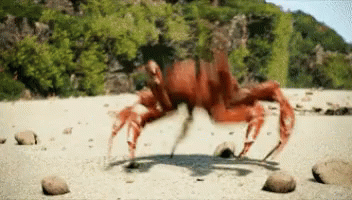
WAR CRIMINAL DOWN!!!!
104 notes
·
View notes
Text
#interracial#wwbm#bmww#kiss#kissing#couple#couples#interracialcouple#interracialcouples#interracialkiss#interracial relationship#interracal#interracial love#interracial couple#international relations
354 notes
·
View notes
Text
Fighting Back in an Age of Impunity

Its the last essay of the year and the events going on in Gaza - and similar events elsewhere - had me pondering some thoughts for those who may feel powerless and like they can't do anything. It's not perfect, but its something.
Full essay under the cut. Happy Holidays.
I feel like I increasingly start each of these essays with checking on folks and seeing how they’re doing following “the event” – with whatever “the event” is varying depending on what time of the year the essay is occurring in. When I first started thinking about what I may be writing for my last essay of 2023, I thought the worst event I’d have to think about was Azerbaijan’s assault on Artsakh, which resulted in over 100,000 ethnic Armenians fleeing their homes as Ilham Aliyev finally realized his genocidal dream of cleansing the region and forcing it fully into Azerbaijan by force.
Of course, then October 7th happened.
This is not to say that what happened with Artsakh should be forgotten about by any stretch of the imagination. We definitely shouldn’t forget about Armenia and Azerbaijan – especially as Azerbaijan, supported by Turkey, continues to make aggressive statements suggesting it may attack the Republic of Armenia proper in order to secure a corridor to its exclave in Nakhchivan. This is still very important and deserves our attention.
At the same time, if you’ve been following world events at all since October 7th, you kinda know what the most pressing, soul-sucking issue of the moment is. In the weeks since the attacks launched by the Gaza-based Palestinian militant groups – spearheaded by the Islamist political-military movement HAMAS, which largely controls the enclave – Israel has used that unarguable tragedy as an excuse to launch a horrific campaign of violence of its own in revenge, the sheer scale and scope of which has left the Israeli bodycount of October 7th in the dust as more and more Palestinians are killed by the Israel Defense Forces with each passing day – most of them women and children.
I originally was going to shift focus and write something entirely about what’s going on in Gaza, but I was also not sure what more I could say that would be constructive and not simply venting to avoid exploding (something I do on Twitter on a regular basis). I also didn’t want to complete leave Armenia and Azerbaijan in the dust, because I felt there were a lot of parallels between the two situations and their histories (which makes sense since Azerbaijan and Israel have such a cozy relationship, with Israel being one of Azerbaijan’s main arms suppliers in its wars against Armenia and Armenians).
In the end, I decided I wanted to write about something that is more generally going on, and that we’ve seen in Israel’s campaign against Palestinians, Azerbaijan’s campaign against Armenia and Armenians, Russia’s war against Ukraine (which Putin says isn’t ending anytime soon in case you were curious), and other acts of aggression by hostile states and armed groups in what feels like every corner of the globe these days. Everywhere you look, it seems that fascistic states and groups are taking every possible opportunity to try and conquer and kill that which they covet or hate.
We are currently living through what I conceive of as a new “Age of Impunity” in international relations, of which the current assault on Gaza is only one example – though certainly the most egregious and barbaric of the moment. Such ages are not new, and have waxed and waned throughout history, but they all have one core theme in common: during their span, we see a drastic increase in aggression by those states and groups who are determined to hammer home the Thucydidean cliche that “the strong do what they can and the weak suffer what they must.”
But there is a new rub to this tale as old as time. Now, in an age of an increasingly interconnected world via the internet and social media and smart phones and etc., aggressors are not just seeking to prove that might is right, but to gaslight us constantly as they do it, doggedly endeavoring to convince us that this state of affairs is not simply the glib, bleak reality that is allowed to persist in international relations, but is actually good and right and just and fair that those of us that dare question their narrative are insane and sick and even criminal for believing otherwise. To try and add further legitimacy or distance themselves from the acts of information warfare, such aggressors often enlist third parties as well who are aligned to them either ideologically or financially (i.e. they’re paid to).
This combination of consequence free mass violence combined with an aggressive campaign to make you feel insane for not thinking its actually good is enough to make anyone with a moral compass feel actually insane, or to feel incredibly depressed and distraught over it all. Its so easy to feel completely and totally powerless from events such as Gaza and more, boiling over inside with a sense of impotent rage, especially when it seems that all that a key set of individuals and governments would need to do to stop it all – or at least less the impact – is show a modicum of backbone and a slight bit of effort to go along with it, but they don’t.
However, it is important for us all to understand against this backdrop of slaughter, that we are not powerless – not completely. There are limits on our power as “normal” people, absolutely; but we are not totally powerless, and the longer we go on thinking that the longer this Age of Impunity will last – to say nothing of other negative states of affairs we’d rather not stick around. There are actions that we as people can take to try and effect better outcomes. These actions are often indirect, focusing on applying pressure in various forms on those who can actually do something or who can otherwise force someone else to do something, but are none the less impactful and not to be disregarded.
To the end of helping folks not feel powerless in the face of impunity and aggression and giving them a concept through which they can push back on aggression and fascism and authoritarianism worldwide, I’ve crafted an approach of my own. The approach I’ve conceived of is extremely simple, straightforward, broad, long-term and almost certainly incomplete – but a start. So, if the gifts you’re looking to get this holiday season are a shred of hope, a sense of purpose, a modicum of agency, and the ability to actually make an impact upon ongoing global events, let’s open up Santa’s big bag of toys and see what’s inside for all the good little guys, gals, and non-binary pals out there. Ho ho ho.
BLUF: “Don’t Shut Up”
I already warned you that my plan is pretty simple. What I haven’t warned you is that this plan, in a nutshell, may make some people roll their eyes and go “yeah, right, whatever” (or something more impolite), so consider yourself warned of that now.
So, the plan? Don’t shut up.
Ok, obviously this is going to need more expounding upon.
To build upon “don’t shut up” in more detail, the plan is simply to not give up voicing your opposition to the unjustifiable acts of aggression going on throughout the world – whoever it is that is undertaking them, whenever they occur, and wherever they occur. This opposition can come in various forms, be it protests and various other forms of activism and civil disobedience, both physical and virtual, but it really can be boiled down to those three words: don’t shut up. Keep talking – shouting, rather – about what’s going on and don’t let people forget what’s going on.
Not to get defensive right off the bat, but I am anticipating some people reading this feeling a bit disappointed, dismissive (maybe to the point of eye-rolling), or frustrated with this simple approach. So I want to take a little time to push back gently before we get more into the nuts and bolts. I’m going to try and not go on for too long with this because I wrote this earlier and fully made half of the essay me being defensive so be thankful I went back to make this part shorter.
First, to those saying “that’s it?” I would say, ‘yes’; but with the caveat that while its a simple answer, its also a simple problem (which I will get into more detail about later). To those saying “that won’t work,” I would say “based on what?” I feel the problem with that strain of preemptive defeatism, dismissiveness, and doomerism are a uniquely American-centric perspective that is focused only on our own experiences – and also, a very recent and limited view of them. All you need to do is look to the rest of the world to see instances where mass movements that refused to be silenced and maintained pressure accomplished the ousting of various dictators and autocrats (I picked relatively recent examples here, but you can look even further back). I know we’re all tired and demoralized and depressed (hence why I’m writing this), but all you need do is widen the aperture a bit and look beyond our shores to see that things are not as hopeless as they seem. That doesn’t mean that there are quick and easy solutions (something else I’ll get into – we’re in this for the long haul), but again, that doesn’t mean that we are powerless and that our actions mean nothing.
Ok, I got my defensive preemptive pushback on doomerism out of the way and I did it in two paragraphs instead of a page and a half. You’re welcome. So let’s actually get into the nuts and bolts.
Using the potential criticism of “that’s it?” as a starting off point, I will concede again that t his is a very simple approach. But, I would also assert that the activity that this approach is crafted to counter is actually fairly simple in its own right when you think about it. It makes sense that a relatively simple problem demands a relatively simple answer (note that just because the idea is simple doesn’t mean the execution will be quick or easy, but we’ll get to that).
Regardless of the approach or the medium through which they are attempting it, in the information sphere, the ultimate goal of an aggressor to is to silence criticism and to boost its own narratives and supporters. If aggressors can’t coerce or cajole you to their side, they’ll settle for getting you to shut up by whatever means are at their disposal – which is just as good to them; it doesn’t matter if they don’t actually have a lot of popular support at home or abroad, but as long as they can silence dissent and criticism and keep their narrative as the main one, they can just keep on doing what they’re doing.
This can take multiple different forms: drowning you out with torrents of useless, twisted, or outright false information, intimidating you through hostility and harassment, depressing you by making you feel weak and powerless and convincing you that there is absolutely nothing that can stop them (potentially giving you a genuine mental breakdown through their gaslighting), and mental and emotional exhaustion from some or all of what was previously described, just to name a few different methods. These methods may be utilized by the aggressors themselves, or through various allies, partners, and proxies – be they other states and organizations various individuals who are consciously or unconsciously boosting the aggressor’s narratives and attacking the aggressor’s detractors. But the end goal of all of these methods remains the same in every case, but in different guises: to shut you up. If the aggressor’s goal is that simple, it make sense that our response doesn’t need to be that complicated either: deny them their objective by simply refusing to be silenced and, in fact, continuously increasing that pressure.
If information is a domain in warfare, it is probably appropriate to think of your role in it not as a soldier in the army of a peer competitors in a high-end conventional fight. Rather, you should think of yourself as a fighter in an insurgent army, and as this information warfare as an insurgency or rebellion or an uprising rather than the information equivalent of a conventional war (at least not at this stage; we have a few more stages of Mao’s guide to get through first in this analogy). If you conceive of it that way, it can make your task seem even more daunting, but then it also can reveal the inherent advantages that we have in our approach and the challenges it creates for an aggressor trying to manage information.
The Cognitive Insurgency of Attrition
I’ve talked about insurgency and counter-insurgency in the physical domains of warfare before at great length, with my main takeaway being that counter-insurgency is almost always a losing game for whoever is acting as the COIN force. Unless they are prepared to make significant political concessions, they are likely to never win; the best they can ever hope for is to not lose – which will require constant fighting and expenditure of resources of all kinds, indefinitely (something that few countries, even reasonably prosperous and powerful ones, can hope to keep up).
Recalling that takeaway, your advantage and the disadvantage of the aggressor becomes clearer. When I said earlier that really all you have to do is not shut up, I really meant it, because as long as you and others refuse to be gaslit and continue to speak out against particular aggression and injustices, the aggressor is failing at the primary objective they have regarding you. As long as you exist and continue to act and speak out, they will continue to have to expend time and resources to try and counter you. The struggle with the aggressor becomes a battle of wills, and by simply continuing to exist and refusing to be silenced, you are wearing them down in a war of attrition. The more they are worn down, the more likely they are to make mistakes and to show more of their true colors, and the full extent of the horror becomes harder and harder for more and more actors (be they people, organizations, states, and etc.) to ignore and turn a blind eye to, and the pressure mounts to take actual action.
This whole approach and the idea of not shutting up and not giving up is closely tied to another idea, which is that “bullying works” (another thing I originally had in a section unto itself, for another peek behind the curtain, but decided it wasn’t dissimilar enough to separate out). As you refuse to be silenced and continue to speak out and apply pressure, one form of that pressure, is in effect, “bullying.” Basically, making sure that those who are either taking part in various acts of aggression or who are facilitating it or supporting indirectly won’t get a moments peace in their lives as long as they continue to do so. They need to be shown that people will not forget what’s going on and will not go away and will be reminding those who are carrying out out aggression or supporting it at every possible opportunity and be making their lives very difficult for as long as it takes and for as much as it takes until change for the better occurs. Remember kids: bullying by punching down (figuratively), is bad; but bullying by punching up (again, figuratively), is not only good, but necessary for a healthy society!
The inherent downside to this overall approach, of course, is that it is a long-term one. This is not a single battle, but a broader campaign in the wider war against aggression and authoritarianism and fascism. This in its own right may be discouraging to some, but also a bitter pill that must be swallowed. To be perfectly clear: this is not me saying that we shouldn’t bother trying to apply pressure and affect change on issues in the short term. To use our primary example of Gaza once more, we should absolutely be trying in the short term to bring more pressure to bear to bring about a lasting ceasefire and greater humanitarian relief and more in Palestine. However, we’d be deluding ourselves if we believed any action we take right now would suddenly and decisively end the occupation and fundamentally change the political status quo in Palestine in the short term.
As discouraging as this reality can be, it should not dissuade us from taking action, but compel us to gear up for the long fight. Much as the right is willing and able to do with its policy goals at home and abroad, we need to undertake more generational and multi-generational efforts to achieve our aims in all areas – especially when it comes to foreign policy and international relations. Like an actual insurgent force fighting an occupying army or authoritarian regime, we must take a long-term view. This long-term view may encompass short term surges and bursts of activity to achieve specific, tangible, secondary and tertiary goals (like a ceasefire, humanitarian aid, or what have you), but its primary goals and planning must be fundamentally protracted in nature.
Even if you understand, agree with, and accept the protracted nature of this approach, that doesn’t mean it can’t still be demoralizing in the short term. However, there are reasons to be optimistic, because if you look around you can see the signs that this approach is already bearing fruit. In the case of Gaza, you can see signs that the dedication to not “shutting up” about the plight of the Palestinian people on the receiving end of Israel’s military campaign in how the Israeli government and its supporters are either becoming more deranged in their defensiveness for their actions, with some Israeli government officials being increasingly mask off about their genocidal intentions towards Palestinians and their homes, as well as increasingly dismissive towards ideas such as the two-state solution – which governments like that of the United States continue to cling to. We also see this in the reaction of some states supportive of Israel, such as the United Kingdom, where now former-Home Secretary Suella Braverman labeled all pro-Palestinian protesters in the country as “hate marchers” (and was fired from her post not long after that).
In other cases, where governments and groups supporting Israel haven’t gone fully deranged, its becoming increasingly difficult for them to look the other way in the face of Israel’s mask-off violence and aggression. Even as US President Joe Biden continues to stand by Israel doggedly and assert its right to “defend itself”, the administration has internally squirmed at Israeli actions (as well as the potential for escalation). While the administration continues to fruitlessly try and have it both ways (which is fundamentally impossible and only wastes time as more civilians die), the fact that they’re even attempting to do that rather than continue to support Israel wholeheartedly shows that the pressure is mounting. This is born out by polls in the United States that show that support for Palestinians is rising. If aggressors and those running support for them are lashing out or are becoming more desperate in their attempts to control the narrative or silence opposition or even have a leg to stand on in their support, those are signs that the pressure that countless regular people are bringing to bear with their humanity is having an impact. Don’t give up now.
I am once again asking you not to give in to despair
We can’t stop everything going on in the world on our own as individuals, that’s true. And posting alone also won’t stop anything – that’s also true (as much as a lot of us wish it would – or convinced ourselves it will). But we are absolutely not powerless, and we must avoid falling into that trap, or the aggressors win right off the bat.
You are fighting in one particular campaign in a much wider war against aggression and fascism and authoritarianism the world over. There are other fronts that exist now and there will be more in the future – both physical, and virtual. But combat of various sorts (literal and figurative) will be required on all of them in order to achieve successes. It is a collective effort; we are are all in this together, in numerous different ways. To crib a line from the trade union anthem Solidarity Forever: “yet what force on earth is weaker than the feeble strength of one, but the union makes us strong.”
The broader struggle against fascism and aggression will be a long war, and all likelihood, it will likely never end in an absolute victory, and only be one in a series of wars and struggles to come (again, both figurative and literal). As I’ve always said in my writing, part of the reason I’m sure people like me will still have a job even in a better world is because there will always be authoritarian aggressors of some kind who can convince others to fight and die for them in service of their rancid ideology and hatred (hence why I say a “better world” and not a “perfect” one). But even if we there will always be another enemy around the corner in some shape or form, we can set ourselves up to be stronger, smarter, more united, more compassionate, and better prepared for the additional struggles and wars ahead.
I’d be remiss if I didn’t point out that everything I just talked about isn’t exclusively for responding to acts of aggression abroad, but is perfectly applicable at home as well. The approach that I’ve laid out can be applied to fascist aggressors of the domestic political variety, just as much as they can be applied to aggressor states and groups overseas engaging in armed aggression. In the United States in particular, we face an ever increasing war from within. Even if the political crisis in the United States doesn’t escalate to the level of a full scale civil war (something that I certainly don’t want, that I imagine most sane people don’t want, and something we should all work to avoid), we still find ourselves in an American Years of Lead situation at bare minimum that will very likely only get worse as we approach the 2024 election. Again, we can see some promising signs that these approaches are actually working, from the progressive gains that have been made in recent off-year elections on matters such as abortion, legalization of marijuana, and other progressive causes – many of which have been in response to right-wing forces doubling down on their extreme positions in desperation as normal people increasingly point out and deride their “sicko” behavior and refuse to let it go unanswered.
However, as heartening as these victories are, polling shows that the 2024 election is looking increasingly fraught, and nothing should be taken for granted in the eleven months that remain before election day 2024 – especially as former-President Donald Trump has been perfectly blunt about what his plans are if he makes it back into the White House (to say nothing of the coterie of other sickos and chuds that he will put into positions of power in his administration if he wins). While far from the only tool at your disposal, the approach I have laid out previously for pushing back on the narratives of fascism, authoritarianism and aggression abroad may very well make a real difference in the rhetorical and political battles against those same insidious forces at home. Keep that in mind on the road to November 5th, 2024 (or, if you live outside the United States, to road to whatever political battles you have to face in the near future).
We live in particularly bleak times in general, there’s no arguing that. This current Age of Impunity we find ourselves in has no shortage of dictators, tyrants, and fascists who are eager to take advantage of global instability and shifting geopolitics to take things they’ve long coveted, settle scores and seek revenge, and carry out a laundry list of other heinous acts. But even in those acts of aggression, we can find hope. For example, in Myanmar, a diverse coalition of varied ethnic groups – spearheaded by young people – are pushing the fascist junta back on its heels in that country’s civil war. While their battle is far from over, the progress they’ve made in recent weeks since launching a new offensive against the junta has been remarkable. Wherever we can, we need to grab onto examples of maintaining persistence, applying pressure, and not giving up hope – whether its on literal battlefields, or political and ideological ones. We need to take the progress and victories where we can, to remind us why we’re doing any of this at all: because we believe a better world is not only possible, but necessary and inevitable.
It is on that note, I leave you on this last essay of 2023. I’ll be back with another by mid-March at the absolute latest for the first essay of 2024 (God only knows what I’ll be writing about by then, but we’ll see where Mr. Bones’ Wild Ride takes us all). For those of you who are celebrating, I wish you a Merry Christmas and a Happy Holiday Season, and also a Happy New Year to you all. Please, wherever and whenever you’re able, even while you all try to keep up the struggle, try to find some time to rest and be kind to yourself because we all need that.
See you in 2024. Stay safe.
#War Takes#essay#War Takes essay#leftism#leftist#the left#socialism#democratic socialism#international relations#war#warfare#fascism#anti fascism#Palestine#Gaza#Israel#Palestinians#international affairs#information warfare#HAMAS
58 notes
·
View notes
Text
WHERE YOU CAN MAKE DONATIONS FOR ARMENIA
kooyrigs: They’ve been carrying out on-ground projects to help Syunik and Artsakh communities ever since the 2020 war in Armenia.
All for Armenia
Miaseen
Center for Truth and Justice : Established in November 2020 in response to the Nagorno-Karabakh war. Team of lawyers and legal professionals that preserve evidence and make it accessible for current or future proceedings, whether in Armenia or abroad.
#signal boost#important#law#armenia#artsakh#stop azerbaijani aggression#politics#history#international affairs#international relations#war#lawblr#british politics#uk politics#current events#news#world news#help armenia#queen elizabeth#british royal family#kate middleton#prince william#princess charlotte#iran#social justice#halloween
1K notes
·
View notes